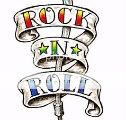I am thinking about buying oliver sachs book Musicophilia
Just about to start on doidges the brain that changes itself
I have just started listening with headphones on to singing Tibetan bowls which I find stiimutating its found here mentioned below on trauma
Wallace
Researchers Discover Ways Of Integrating Treatment Of Traumatized Tibetan Refugee Monks
Main Category: Anxiety / Stress
Also Included In: Psychology / Psychiatry; Complementary Medicine / Alternative Medicine
Article Date: 14 Mar 2009 - 0:00 PDT
email to a friend printer friendly view / write opinions
Ads by Google
--------------------------------------------------------------------------------
Anxiety Recovery Retreat
UK's Only Dedicated Facility Become Anxiety Free Naturally
www.anxietyrecoveryretreat.co.uk
Current Article Ratings:
Patient / Public: 3.67 (6 votes)
Health Professional: 4.33 (3 votes)
Article Opinions: 0 posts
Find other articles on: "tibetan sing bowls cfs"
The Boston Center for Refugee Health and Human Rights (BCRHHR) at Boston Medical Center recently treated many of the large number of Tibetan refugee monks who fled violent religious persecution. These individuals arrived in Boston suffering from symptoms of traumatic stress, interfering with their meditative practice. The monks were diagnosed by their traditional healers as having srog-rLung, a life-wind imbalance. Recognizing that barriers exist between western and eastern medicine, the BCRHHR researched and implemented its own complementary therapy options to heal them. These findings appear online in the March issue of Mental Health, Religion and Culture.
According to Tibetan medicine, a srog-rLung disturbance has the potential to develop into a serious mental illness, leaving the victim at odds with the balance of the universe as well as jeopardizing his personal health. Symptoms of srog-rLung include uncontrollable crying, worrying, excessive mental, physical or verbal activity and an unhappy mind. Other conditions affecting the monk's health include anxiety, depression and post traumatic stress disorder (PTSD).
Research in cross-cultural health settings, particularly refugee health services, shows that successful treatment is contingent on a combination of the patient's interpretation of the illness and biomedical categories. This allows the patient to actively participate in his or her own healing. Cross-cultural psychiatric assessment is also necessary in determining appropriate treatment options, as treatment can be detrimental if not harmonized with the religious context in which mental illness will develop for these monks. The BCRHHR used traditional healers to obtain a dual diagnosis for the development of holistic therapy that responds to both PTSD and srog-rLung.
"This research and treatment involving patients accustomed only to traditional medicine, presented an opportunity for the acceptance of non-traditional therapeutic approaches," explains Michael Grodin, MD, professor of health law, bioethics and human rights at Boston University School of Public Health, and professor of psychiatry, sociomedical sciences and community medicine at Boston University School of Medicine. "The difference between Tibetan and Western disease pathologies represents the need for evidence-based complementary therapies, such as the Tibetan monks in exile and other religious refugee populations," said Grodin.
Tibetan Buddhist tradition dictates that the cure for suffering is enlightenment, attainable through meditation. When this occurs, the body is freed from anxieties and fears. The monks who were treated for PTSD and srog-rLung are finding that meditation, once second nature, has become difficult after nights filled with flashbacks that put the monks in a state of hyper-vigilance for the next day.
According to the researchers, in order to provide complimentary therapy for the monks, eastern and western medicine needed to be integrated to properly address both conditions. The spiritual aspect of the Tibetan medical model, which is at the core of the monks' experience of illness, guided this research. Ancient Tibetan Bon tradition of yogic practice was used to induce the mind into a relaxed state necessary to purify oneself through motion. This yogic practice combines movement of the body and controlled breath with movements of the mind to bring mental stability and offers an alternative to the monks' inability to eliminate invasive thoughts. Another therapy that was used is singing bowl therapy - a form of music therapy, as sound has a direct connection to the heart, which aligns with srog-rLung experienced by the monks.
Grodin said the refugee health center at BMC integrated techniques of western medicine, such as anti-depressant prescribing and psychotherapy, with Tibetan healing practices, including medicines prescribed by Tibetan Amchi, meditation advice, Tai Chi and Qi Gong exercises. Grodin is trained in traditional Chinese medicine, such as acupuncture and meditation.
Notes:
Other authors on the publication were Adriana Lee Benedict of Harvard College and Linda Mancini of the LamRim Buddhist Center and the BCRHHR.
Source: Allison Rubin
Boston University

